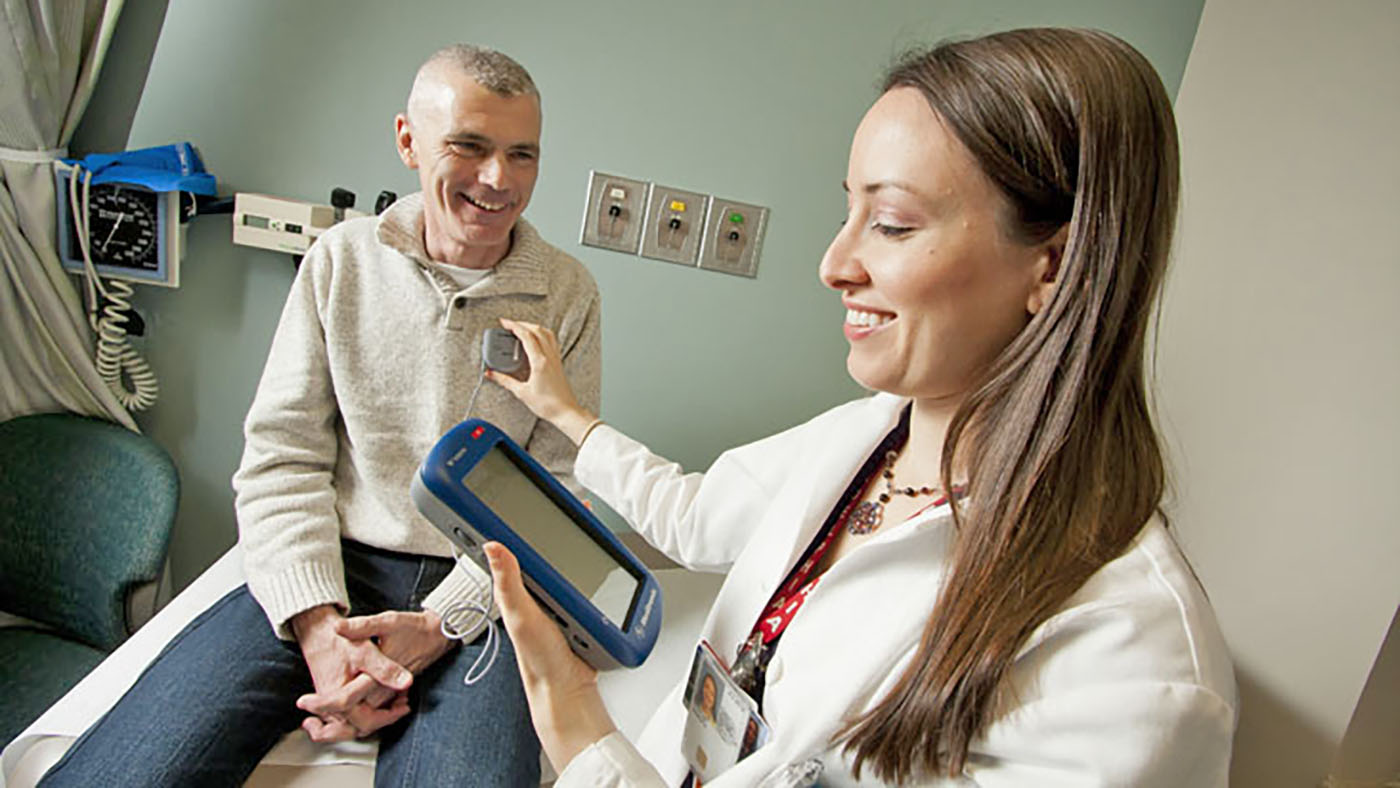Thousands of Veterans face the everyday challenges that come with having a serious heart or lung condition. Many experience physical and mental health symptoms ranging from difficulty breathing to anxiety and depression.
For Veterans in rural communities, accessing care for these conditions presents an additional challenge. But VA’s revolutionary approach to delivering specialty care brings help within reach.
VA’s Office of Rural Health (ORH) pioneered an innovative approach to heart and lung care that brings rehabilitation services to Veterans at home. Home-Based Cardiac and Pulmonary Rehabilitation each use telehealth to eliminate traditional barriers to rehabilitation services and increase rural Veterans’ access to essential care.
The results speak well for the approach. One rural Veteran credits ORH’s home-based rehabilitation for improving his health care and overall quality of life. “I felt better on my 70th birthday than I did on my 50th,” he said.
To learn more about Home-Based Cardiac and Pulmonary Rehabilitation, watch this video.
Bridging the gap to cardiopulmonary rehabilitation
Despite the effectiveness of cardiac and pulmonary rehabilitation, these programs are often underutilized. Only about 10% of eligible Veterans participate in cardiac rehabilitation and only 25% of VA sites of care are equipped to offer in-person cardiac rehabilitation services. Pulmonary rehabilitation programs are used even less frequently with only 1.5% of eligible Veterans participating.
Many rural Veterans face barriers to cardiac and pulmonary rehabilitation, including lack of availability, long distances and cost. Home-based rehabilitation programs offer a more convenient form of care for rural Veterans who may not be able to regularly attend in-person appointments.
During the first appointment, Veterans meet with their provider at a participating VA medical center to discuss their individualized treatment plan. But for the remainder of the 12-week program, Veterans have the flexibility to connect with their rehabilitation provider through phone or video telehealth visits.
ORH’s home-based rehabilitation programs incorporate guidance tailored to each Veteran’s unique needs and environment including:
- Stress management
- Exercise
- Medication management
- Tobacco cessation
- Nutrition counseling
Strengthening hearts at home
Cardiovascular disease is one of the leading causes of hospitalization across the VA health care system, impacting thousands of Veterans every year. To increase access to cardiac care for Veterans in rural communities, ORH piloted the Home-Based Cardiac Rehabilitation Program at the Iowa City VA in 2010.
Over the past decade, the program has enrolled more than 8,600 Veterans and expanded to 37 VA facilities across the country. The program’s clear success drove ORH to launch the Home-Based Pulmonary Rehabilitation Program in 2018.
Helping Veterans breathe easier
Not only is Chronic Obstructive Pulmonary Disease (COPD) the 6th leading cause of death in the United States but it’s more than twice as common in rural areas. ORH’s Home-Based Pulmonary Rehabilitation Program provides rural Veterans with the flexibility to access the pulmonary care they need from the comfort of their own home. To date, the program has supported more than 4,400 Veterans and is available at 35 VA sites of care nationwide.
Veterans in ORH’s home-based rehabilitation programs saw considerable improvements in their nutrition habits, weight loss, overall mobility and confidence.
“I sincerely believe this is one of the most significant opportunities available for Veterans to regain confidence. The program has helped me considerably,” said a Veteran participant.
In addition to medical care, both programs equip Veterans with educational materials to help them understand their conditions and make informed choices about their health. From heart-healthy eating habits to stress management techniques, Veterans learn to take control of their well-being.
To learn more about VA’s Office of Rural Health, please visit: www.ruralhealth.va.gov.
Topics in this story
Link Disclaimer
This page includes links to other websites outside our control and jurisdiction. VA is not responsible for the privacy practices or the content of non-VA Web sites. We encourage you to review the privacy policy or terms and conditions of those sites to fully understand what information is collected and how it is used.
More Stories
Veteran Byron Potier weighed almost 300 pounds and was tired and lethargic. He was the perfect candidate for gastric sleeve surgery.
How much do you know about VA care, benefits and services? Don’t miss out on what you've earned—check out the "2025 VA Federal Benefits Guide for Veterans, Dependents, Survivors, and Caregivers" handbook to learn more.
Feeling stressed? Your breath can help you relax and focus. Take 3 minutes to reset and prioritize your well being for this week's #LiveWholeHealth practice.






